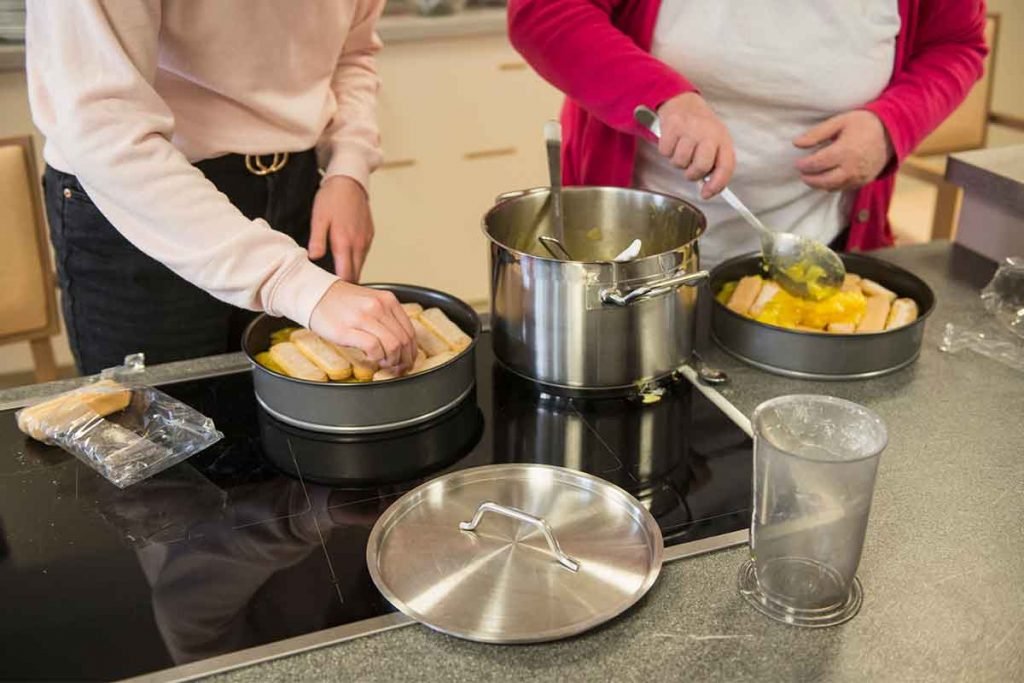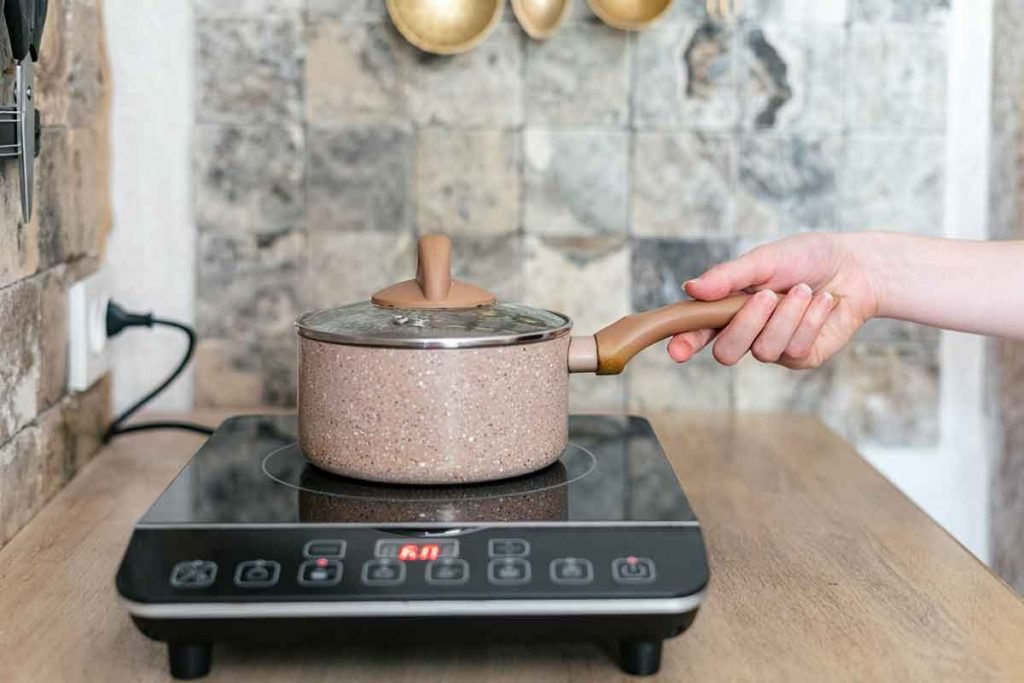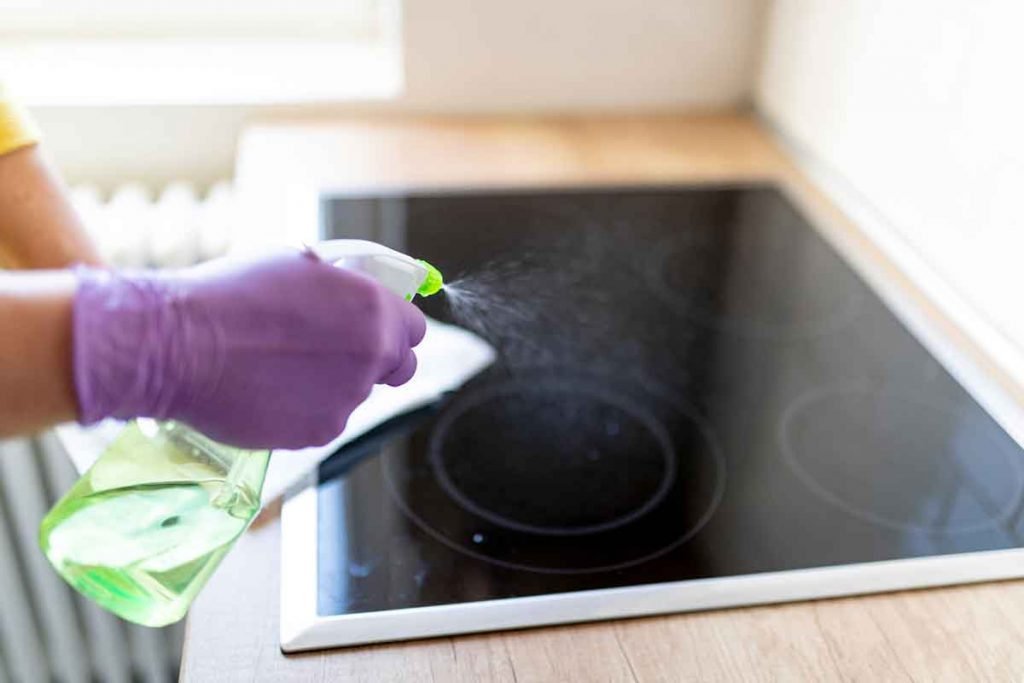If you already own an induction cooktop or are making plans to own one, you may be worried about the type of utensils you may use on it. Induction cooktops are designed to work with cookware made of specific materials.
In today’s piece, we’ll guide you on how to use non-induction cookware on an induction cooktop by answering some FAQS you may have about induction well-suited cookware. Ready? Let’s dive right in.
Can You Use Regular Pans on an Induction Cooktop?
No. Why? Well, because most of the regular pans are made from non-magnetic materials. Non-magnetic materials cannot be used on an induction cooktop. Never try using your regular pans on your induction cooktop unless they are approved for use on induction cooktops. If you try using them, you may end up damaging the top of your cooktop and incur some avoidable expenses.
Before you use a regular pan or utensil on your induction cooktop, make sure you consult your induction cooktop manual to know it’s compatible with the pan/utensil.
How Do I Make My Cookware Induction Compatible?
You’ve probably heard you can make regular utensils compatible with induction cookers. But you are probably wondering: How can you do it? Well, all you need is to invest in an induction converter disk. What’s an induction converter disk? Let us explain.
Converter disks are flat metallic plates, which are placed on top of induction cooktops before you place your regular pans. These converter disks are made of magnetic materials that help make them compatible with your induction cooktop.
Through them, your cookware will receive the heat, and you will be good to go. Without these converter disks, you cannot use your regular pans on your induction cooktop, unless they are made from a magnetic material.
Do You Need Special Pans for an Induction Cooktop?
Though there are special pans on the market designed for induction cooking, you don’t have to spend money buying them because you can buy an induction converter, which will enable you to use your regular utensils on your induction cooker.
If your pan is stainless steel and has a flat bottom, you can use them on your induction cooker without an induction converter. Most induction cooktop producers have approved the use of stainless-steel utensils, so don’t worry; your stainless pan won’t damage your cooktop.
If you want to buy induction cookware, you should be very careful. There are many substandard utensils, and their manufacturers claim they support induction. Make sure you buy cookware made by renowned manufacturers. Utensils from top manufacturers are usually made using high-quality material and are marked with clear symbols displaying where they can be used.
Also, be sure to visit review sites to find out what customers say about certain cookware before you buy it. Pans made from cast iron or black steel will work well for your induction cooktop. As we mentioned earlier, pans with magnetic-grade stainless-steel bases are also compatible with induction cooktops.
Before you purchase something that might end up spoiling the surface of your induction cooktop, you must consult your induction cooktop manual or producer to know the varieties you could use on it.
What Happens If You Put a Non-Induction Pan on an Induction Hob?
What happens if you put a pan made using non-induction material, such as a copper or aluminum utensil, on your cooktop? Well, non-induction materials such as copper will not allow the magnetic field to pass, meaning the pan won’t ‘ heat up.’
In some cases, putting non-induction cookware on an induction hob could lead to malfunctioning and damage to your cooktop.
How Do You Know If a Pan Is Induction Ready?
Unless you are an expert, all utensils look the same. So how do you tell if a pan or cookware is compatible with induction cooktops? Simple: Read the manual that comes with the cookware and check if it’s made using induction material or non-induction material.
Induction materials comprise iron, cast iron, tempered steel, carbon steel, and so on. All these materials are magnetic, meaning you can also use a magnet to test if cookware is compatible with your cooktop or not.
Another fundamental thing to remember is that your cookware must have a level base. So regardless of whether you have a magnetic pan, on the off chance that it isn’t flat, it won’t work with an induction cooktop. This is because the cookware must be flat to enhance the creation of a magnetic field on your induction cooktop.
Why Does My Induction Pan Not Work?
The first thing you must check when your induction pan doesn’t work is that it’s an induction-ready pan. In most cases, you will find this info indicated under the base of the pans.
Most of the manufacturers indicate this under the base of the pans, but others do not. If your pan fails to work, there are higher chances that it is not induction ready. You can also check if the pan is induction ready by putting a magnet under your pan. If the magnet sticks, your pan is induction prepared, and this means your induction cooktop has a problem.
Don’t try to repair the cooktop on your own; it’s risky. You’ll need to contact a professional to help you fix it. If the magnet doesn’t stick to the pan, you will have to buy an induction-ready pan.
What Cookware Does Not Work With Induction?
Whenever you purchase your induction cookware, you must be sure you choose compatible with your heating. All induction cooktop models work with cookware made from magnetic materials and have a flat base.
If the cookware is made using non-induction material, it won’t work with induction. The same also holds for cookware made of induction material but doesn’t have a flat base.
What Is the Best Cookware for Induction Cooktops?
What is the cookware for induction? Those made of cast iron, tempered steel, or carbon steel? In general, any cookware you find containing enough induction atoms will work well with your induction.
With that said, cookware made from cast iron and stainless steel is, therefore, considered to be best for your induction cooktop. Why? Because they allow the magnetic field to pass, and they don’t need much electricity to heat them up. They are also highly durable and resistant to scratch and wear.



